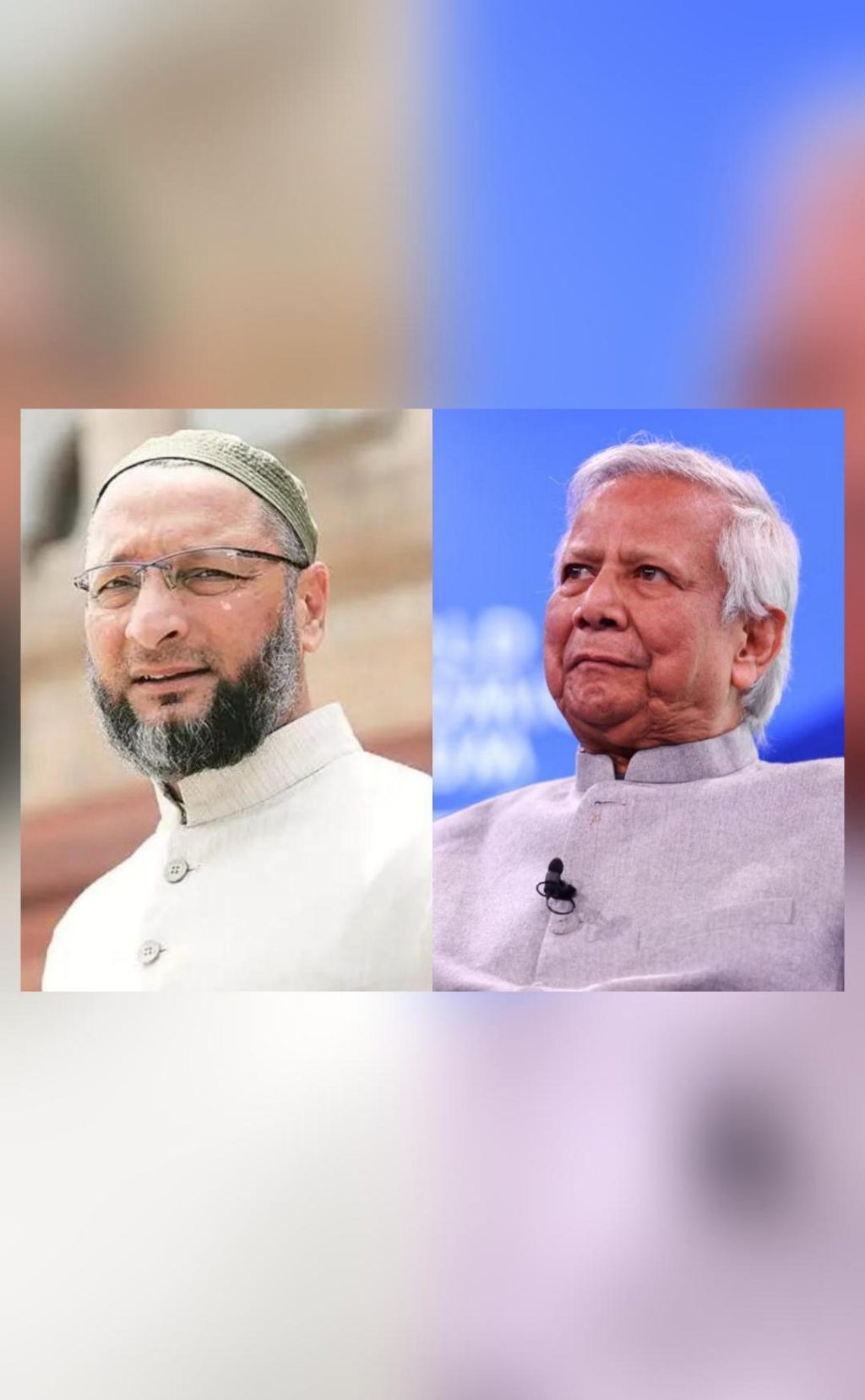
You Owe Existence to India: Owaisi on B’desh’s Yunus Aide’s Claim
In a recent statement that has sent shockwaves across the region, Asaduddin Owaisi, the chief of the All India Majlis-e-Ittehadul Muslimeen (AIMIM), has slammed the remarks made by ALM Fazlur Rahman, a close aide of Bangladesh’s Prime Minister Muhammad Yunus, on the northeastern states of India. While speaking at a public event, Owaisi strongly criticized Rahman’s statement, saying, “You must remember that you owe your existence as an independent country to India.”
Rahman’s comments had sparked outrage in India, with many viewing them as an affront to the country’s sovereignty. Speaking at an event in Dhaka, Rahman had said that if India attacks Pakistan, Bangladesh will have to occupy seven states of northeast India. This statement has been widely condemned by many, including Owaisi, who has been vocal about his opposition to such provocative remarks.
Owaisi’s criticism of Rahman’s statement is not without merit. Bangladesh’s independence from Pakistan in 1971 was facilitated by India, which provided critical military and logistical support to the Bangladeshi liberation movement. In fact, India’s then-Prime Minister Indira Gandhi played a crucial role in recognizing Bangladesh as an independent nation and providing diplomatic support to the new government.
India’s role in Bangladesh’s independence is well-documented. In 1971, Bangladesh was a province of Pakistan, but the country’s Bengali majority had long been seeking greater autonomy and economic development. The Pakistan government, however, responded with brutal force, leading to a bloody conflict that claimed millions of lives. India, which shares a long border with Bangladesh, played a crucial role in the liberation war, providing refuge to millions of Bangladeshis who fled the violence.
Owaisi’s statement is a reminder of the historical context in which Bangladesh gained independence. While Bangladesh and India have had their share of disagreements over the years, there is no denying the fact that India played a crucial role in the country’s independence. To suggest that Bangladesh owes its existence to anyone else, including Pakistan, is not only inaccurate but also ignores the sacrifices made by the people of Bangladesh and India during the liberation war.
In his statement, Owaisi also drew attention to the fact that Bangladesh and India have a long-standing relationship built on mutual trust and cooperation. The two countries have collaborated on a range of issues, from trade and commerce to security and counter-terrorism. The relationship between the two nations is built on a foundation of shared values and principles, including democracy, secularism, and human rights.
Rahman’s statement, on the other hand, is a stark reminder of the tensions that exist between Bangladesh and Pakistan. The two countries have a complex and often contentious relationship, marked by border disputes, trade tensions, and ideological differences. The statement by Rahman, an aide of Prime Minister Yunus, is seen by many as an attempt to undermine India’s reputation and create divisions between Bangladesh and India.
In conclusion, Asaduddin Owaisi’s statement is a timely reminder of the historical context in which Bangladesh gained independence. While Bangladesh and India have their differences, there is no denying the fact that India played a crucial role in the country’s liberation. The relationship between the two nations is built on mutual trust and cooperation, and any attempt to undermine this relationship is not only inaccurate but also dangerous.



